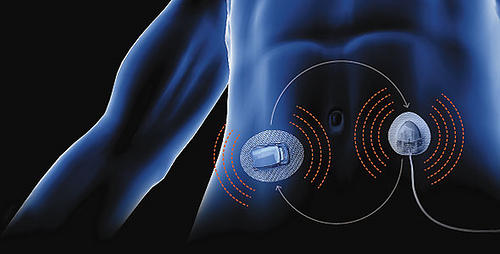 Diabetics can experience either of two unusual blood sugar phenomenons that happen overnight. One is the Somogyi effect, or “rebound hyperglycemia,” during sleeping hours, likely caused by going to bed with low blood sugar. Another is the Dawn phenomenon, which manifests as a high blood sugar reading upon rising because of glucose-elevating counterregulatory hormones secreted at night. While there are several steps one can take to help prevent these potentially dangerous sugar level fluctuations, constant monitoring and on-time insulin are still necessary.
Diabetics can experience either of two unusual blood sugar phenomenons that happen overnight. One is the Somogyi effect, or “rebound hyperglycemia,” during sleeping hours, likely caused by going to bed with low blood sugar. Another is the Dawn phenomenon, which manifests as a high blood sugar reading upon rising because of glucose-elevating counterregulatory hormones secreted at night. While there are several steps one can take to help prevent these potentially dangerous sugar level fluctuations, constant monitoring and on-time insulin are still necessary.
Because consistent blood sugar monitoring and drug administration is paramount to disease management, many physicians recommend an approach that does not necessitate frequent finger-pricks and subcutaneous insulin injections — a continuous glucose monitoring (CGM) device with an insulin pump, which acts like an “artificial pancreas.” This innovation is the focus of a series of clinical trials at the University of Cambridge and Cambridge University Hospitals, to be led by Dr. Roman Hovorka.
These 4 studies will involve 70 teenage and adult diabetic patients from Cambridge, Germany, Austria, London, and Leeds, and will determine if the device encourages better glucose control and consequently reduces risks from hypoglycemia. The participants are required to wear the device when at home in the daytime, or overnight.
Today, diabetic pediatric clients receive as many as 10 finger pricks a day for glucose monitoring. After getting a reading, they have to compute their insulin dose and administer it. This routine can oftentimes be too much for children, leaving many of them at risk for overnight hyperglycemia. According to Dr. Hovorka, these study’s findings can contribute to these pediatric clients’ needs, as well as answer questions about long-term complications from poor glucose control.
An upcoming highland ball is scheduled to take place on November 15, 2014 at the Grand Hall, Girton College. Proceeds will go to the Juvenile Diabetes Research Foundation to fund treatments for Type 1 diabetes in children. For details and to book tickets, visit their website or email [email protected] or call 0207 7132039.


